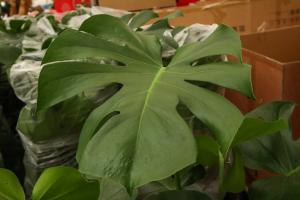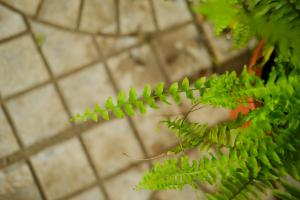Can Plants Drink Salt Water?
Water is crucial to the growth and survival of every plant. However, not all water sources are created equal. Salty water, for example, can be harmful to many plants. But can plants drink salt water? In this article, we explore the answer to this question and its implications for agriculture and the environment.
What Happens When Plants Consume Salt Water?
When plants absorb salt water, the salt in the water accumulates in their tissues, which can lead to water stress and ultimately death. This is because salt water has a higher concentration of salt than the plant's cells. As a result, the plant needs to use more energy to remove the excess salt from its cells, which puts stress on its internal processes and reduces its overall ability to grow and thrive.
Are There Plants That Can Tolerate Salt Water?
While most plants cannot survive in salt water, there are some species that have adapted to saline environments. These plants, known as halophytes, have evolved mechanisms to excrete salt or store it in their leaves. For example, mangroves and salt marsh grasses have specialized cells that actively pump salt out of their tissues, while other plants have special structures in their leaves that allow them to store salt without damaging their cells.
How Can Plants Be Grown in Saline Soils?
Soil salinity is a major problem in many agricultural regions, particularly in arid and semi-arid areas. To grow crops in saline soils, farmers can use several strategies to reduce the amount of salt in the soil, including leaching, adding gypsum or other amendments, and planting crops that are salt-tolerant. In addition, some crops can be irrigated with saline water, but this requires careful management to prevent salt buildup in the soil and the accumulation of toxic levels of salt in the crop.
What Is the Impact of Saline Agriculture on the Environment?
While saline agriculture can help farmers produce crops in areas with limited water resources or poor soil quality, it can also have negative environmental impacts. For example, excessive irrigation with saline water can lead to soil erosion and waterlogging, which can damage ecosystems and reduce biodiversity. Saline agriculture can also result in the release of greenhouse gases, such as methane, from decomposing organic matter in salt-affected soils.
Conclusion
In conclusion, while some plants can tolerate salt water or saline soils, most plants cannot. Saline agriculture can be a useful strategy for farmers in certain areas, but it requires careful management to prevent negative environmental impacts. It is important to continue researching and developing new technologies and approaches for growing crops in saline environments to ensure food security and environmental sustainability.

 how many times do yo...
how many times do yo... how many planted tre...
how many planted tre... how many pine trees ...
how many pine trees ... how many pecan trees...
how many pecan trees... how many plants comp...
how many plants comp... how many plants can ...
how many plants can ... how many plants and ...
how many plants and ... how many pepper plan...
how many pepper plan...
































